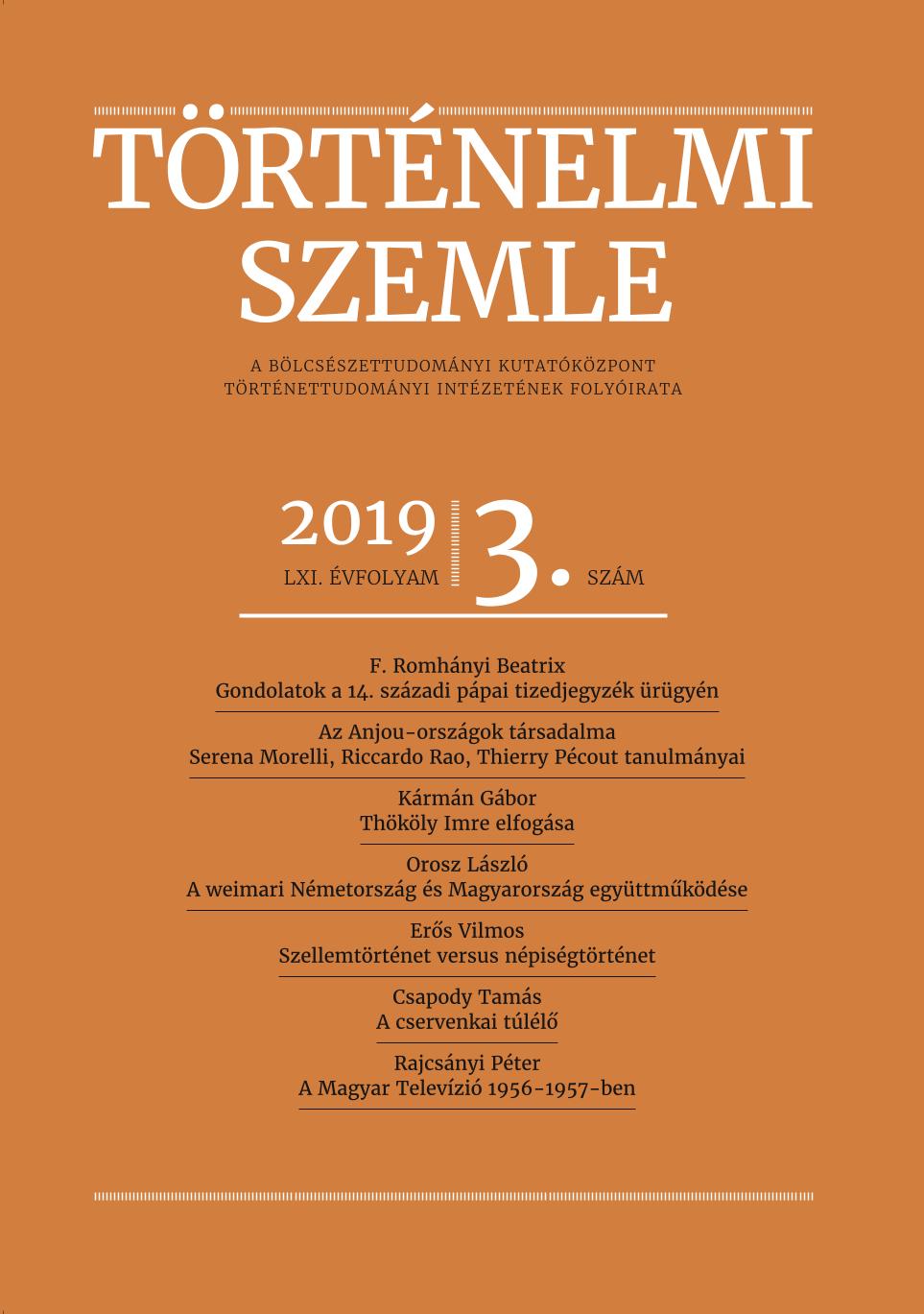„Egy vak és egy béna, ha összefognak…” A weimari Németország és Magyarország együttműködésének kérdéséhez
„The Blind and the Lame, If They Join Hands…”. On the Cooperation between Weimar Germany and Hungary
Author(s): László OroszSubject(s): Interwar Period (1920 - 1939)
Published by: Magyar Tudományos Akadémia Bölcsészettudományi Kutatóközpont Történettudományi Intézet
Keywords: international relations; history of diplomacy; German and Hungarian history after 1918; Versailles Peace Treaty; revisionism
Summary/Abstract: It is a historical commonplace that after World War I the only country on whose help Hungary could reckon in order to buttress her efforts to modify the Versailles borders was Germany. This, in turn, paved the way for Hungary as an ally and later vassal of Germany to the tragic events of World War II. While the attitude of Berlin to the chief priority of Hungarian politics, the issue of territorial revision, is best explored with regard to the post-1933 period, the preceding Weimar years also offer important lessons. These one and the half decades, however, by no means constitute a uniform period in terms of the cooperation of the two countries. Three subperiods can clearly be distinguished: the first years characterised by mutual mistrust and reservation (1918–1923); the position taken by the Stresemann administration, based on the rejection of Hungarian claims (1923–1929); and, finally, the tactical change of perspective in the later Weimar era (1930–1933). The paper examines these subperiods in turn, briefy surveying the prehistory of German-Hungarian relations before 1918 and Germany’s own trauma (Versailles Peace Treaty, internal and external crisis, consolidation) as well in order to facilitate the interpretation of the historical context.
Journal: Történelmi Szemle
- Issue Year: 2019
- Issue No: 03
- Page Range: 451-477
- Page Count: 27
- Language: Hungarian

